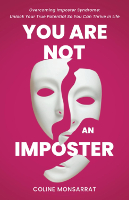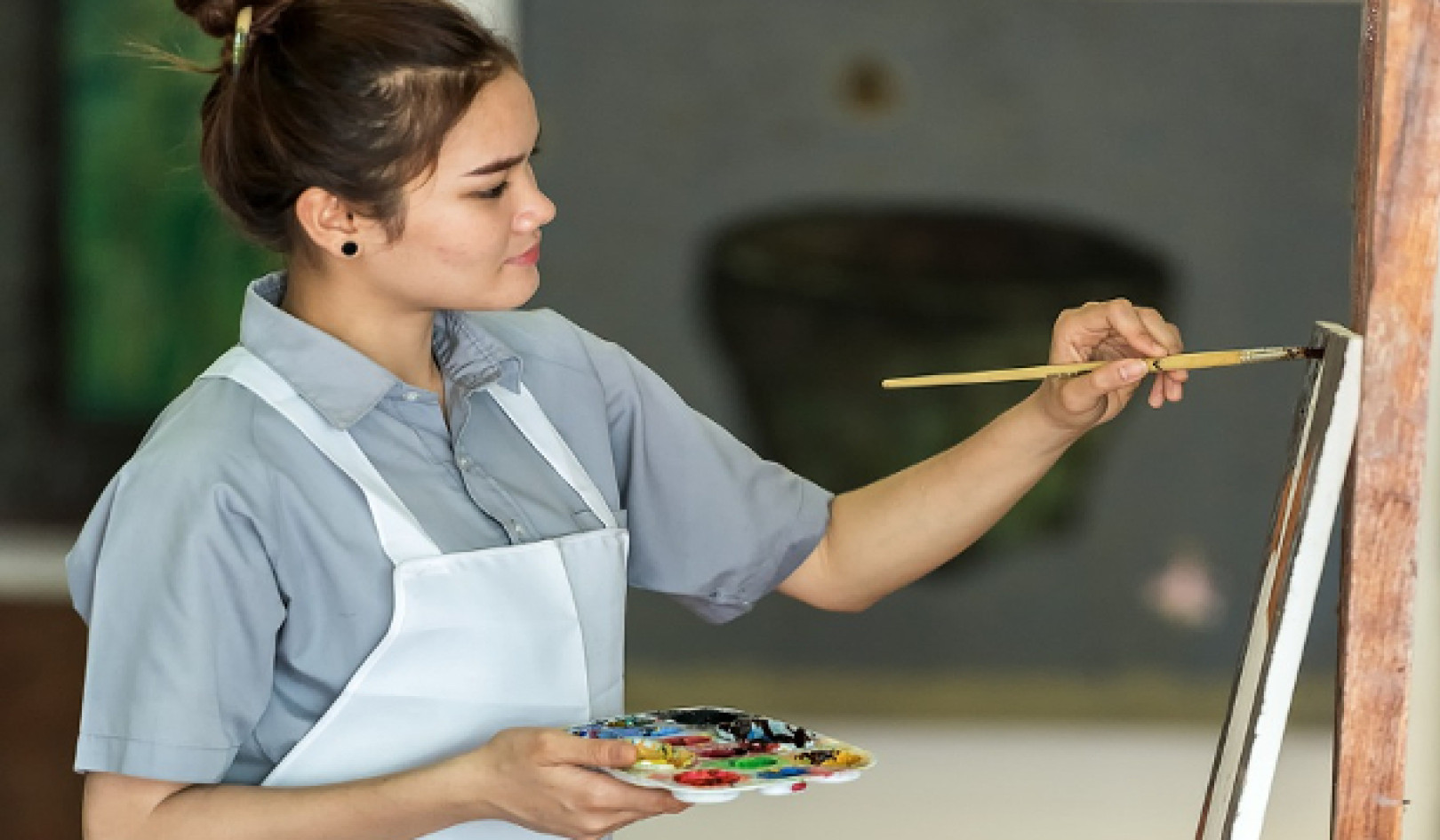
We know how taking things personally affects us in a negative way. We know it is a bad habit, but it seems complicated to resist the thoughts that come to our minds.
I was fully aware of this flaw and how it affected me. But I could never resist the urge to think that I had done something terrible when someone would not respond or talk to me harshly or provide justification for things that were out of my control.
It became complicated for me to manage at work as my position often exposed me to these situations. I was the person in charge of presenting work I did not do, and even if it was not my work that was judged, I was the one receiving the feedback. And when that feedback was negative, I would start to indulge in a monologue trying to justify something that had nothing to do with my work.
I would then think about the event for hours and sometimes days. The physiological response that these unnecessary stressors caused started to worry me. As a diabetic, I could no longer ignore my blood sugar rising as my fight and flight response activated. The numbers were there to prove its detrimental effect on my body, and my health was now my priority.
Our Fundamental Need to Belong
That is how I started my journey of trying to find the roots of why we take things personally. And I realized that many reasons lead us to behave this way, which might explain the high prevalence of this symptom in humans.
One theory that could explain our behavior is that we have a fundamental need for love and approval; when we don’t get it, we feel rejected. “Humans have a fundamental need to belong.” (DeWall, as cited in Weir, 2012, para. 5) We thrive in community, and the idea of being rejected by it puts us in the darkness of hell.
When we experience rejection, it activates the same pain pathways in our brain as when we feel physical pain. This is why rejection can feel so excruciating and overwhelming.
Rejection? True or False
When someone does not respond to us, we fear weve been rejected and anticipate the feelings even before knowing whether it is true or not.
Sometimes, you will even fear rejection from someone you just met even if you do not yet know if you also like them. It is like we are pushed to seek validation and acceptance from others without questioning our feelings about them.
We constantly seek love and approval from others, but what we really need to do is learn to love ourselves first. Only then can we truly accept the love and acceptance of others without feeling the fear of rejection.
Rejected? That’s Life!
Being rejected is part of life. We will never be able to be loved by or please everyone. It is crucial to understand this, as failing to do so will lead us to worsen the view we have of ourselves. And we should never forget to ask ourselves, do we like everyone we meet? Most probably not.
We should also remember that rejection does not define who we are as a person. It may hurt, I do not deny it, but we cannot allow the point of view of others to constantly affect us as a person. So next time you fear rejection, remember that your need for love and approval should come from within yourself before seeking it from others.
Craving Love and Approval
But why do we crave love and approval so much? Evolutionary psychologists believe that our ancestors who had strong social bonds with their communities were more likely to survive and pass on their genes. So, this need to belong could be hardwired in us.
Additionally, Baumeister et al. (2005) explains that being rejected or excluded by a group can severely affect our self-esteem and self-worth. We may even become isolated, and isolated individuals are at higher risk of depression and anxiety disorders.
Although the fear of rejection can sometimes lead us to conform to societal norms or give in to peer pressure, it is also important to remember that we deserve love and acceptance for who we indeed are. We must surround ourselves with a supportive community that understands and accepts us. And if we encounter rejection, we must remind ourselves of our self-worth and continue pushing forward in the search for belonging.
Self-Doubt
We often project our insecurities and doubts onto other people. We think people doubt our abilities when in reality, we are the ones doubting. We attach meaning to what others say or how they act based on our beliefs.
If we believe we are in a position at work that we do not deserve and expect to be found out as an imposter, we will interpret our colleagues’ feedback through that filter. We will perceive judgment where it was not meant; we will only be able to see what we expect and dismiss the rest.
Because I doubted my ability to do the work, I was always on the defensive. And even when we receive compliments and accolades from others, we brush them off as we do not believe we deserve them, but the criticism will sting even if it was not meant to.
This need to believe that the universe revolves around us seems arrogant until we scratch a little deeper to find the real culprits—self-doubt, imposter thoughts, and the need for constant validation that we are good enough. We take things personally because, on some level, we do not feel good enough. We seek validation from others because we cannot give it to ourselves.
The solution is to pause and question the thoughts that come up. Are they based in reality or does insecurity fuel them? It takes practice, but with time, we can learn to give ourselves love and validation instead of constantly seeking it from others. This will allow us to respond calmly and rationally to situations instead of letting our self-doubt cloud our perception.
How to Stop Taking Things Personally
To get rid of this habit, we will again need to put in some effort. At least in the beginning.
There is no magic pill to stop taking everything personally: We need to change the way we think when these situations erupt in our life. That’s what I did, even if it was very uncomfortable for me to do so.
Remember, our brain does not like it when we try to change ingrained patterns or behaviors. It may resist and even try to pull us back into old habits. However, we can rewire our brains by creating new neural pathways with persistence and determination.
Embrace Criticism
Learning how to stop taking things personally also means learning how to take criticism. One of the biggest hurdles in learning to take criticism well is letting go of the feeling that it is a personal attack. It can be difficult not to internalize negative feedback, but it’s important to remember that criticism is intended to help us improve and grow. Instead of viewing criticism as an attack on our worth or character, we must try to reframe it as constructive feedback on our actions or behavior.
This shift in mindset can help alleviate the initial hurt or defensiveness, allowing us to assess and consider the criticism being given objectively. It’s also helpful to remember that everyone has room for improvement and receiving criticism does not make you inferior or inadequate.
Additionally, try to focus on the specific points being raised rather than getting caught up in your emotions. This allows you to address the issues at hand and work toward improvement without getting distracted by hurt feelings.
Taking constructive criticism is very important as it can help us move forward and grow. However, it would be best if we also recognized when criticism is not intended for us and, in fact, a defense mechanism by the criticizer. This can be particularly hard to let go of as we see it as unfair. But there is nothing we can do about it as only the criticizer can work on their self-awareness.
I am always amazed by the amount of hate comments that an article describing the success story of someone can bring. But when you dig deeper, you realize that it is often not about the subject but instead reflects the failure or jealousy of the haters.
Instead of letting this type of criticism bring us down, we should use it as an opportunity to reflect on our own actions and intentions. Are we genuinely trying to work toward our goals and staying true to ourselves? Are we surrounding ourselves with positive influences who will lift us up rather than bring us down?
Pick Your Battles
Remember, it is not worth expending energy on those not genuinely trying to help or improve us. Focus on yourself, and let go of any negative criticism that does not serve a purpose in your growth and development. It may not be easy, but ultimately it is the best thing for you and your future. Keep pushing forward and let go of any negativity that may hold you back.
Next time someone critiques or criticizes you, take a step back and analyze the motive behind their criticism. Is it because they genuinely want to help you improve, or are they just trying to tear you down? Recognizing the difference can allow you to separate yourself from the criticism and not let it affect your self-worth.
Of course, there will always be times when we take things personally and let these feelings get to us. We are only human. But, we can learn how to stop taking things personally and focus on bettering ourselves instead.
It’s important to note that our brains constantly change and adapt, even as we age. So don’t take your 20-plus years of experience in taking things personally as an excuse not to act differently.
Copyright 2023. All Rights Reserved.
Book by this Author: You Are Not an Imposter
You Are Not an Imposter: Overcoming Imposter Syndrome: Unlock Your True Potential So You Can Thrive in Life
by Coline Monsarrat
 Do you ever feel like a fraud, fearing that others will discover you're not as competent or deserving as they think? You're not alone. Imposter syndrome affects a staggering 70% of people at some point in their lives. But what if you could break free from its grip and live with confidence and authenticity?
Do you ever feel like a fraud, fearing that others will discover you're not as competent or deserving as they think? You're not alone. Imposter syndrome affects a staggering 70% of people at some point in their lives. But what if you could break free from its grip and live with confidence and authenticity?
Part memoir, part guide, this transformative book uncovers how imposter syndrome silently infiltrates various areas of our lives. From sabotaging our careers to undermining our well-being, its impact is far-reaching and often underestimated. Coline Monsarrat dives into the science behind the condition, unraveling the psychological mechanisms that give rise to self-doubt, perfectionism, low self-esteem, and people-pleasing tendencies. Coline offers practical strategies derived from her personal journey, equipping readers with the tools to break free from imposter syndrome's grasp.
For more info and/or to order this book, click here. Also available as an audiobook, Hardcover, and a Kindle edition.
About the Author
 Coline Monsarrat is a passionate author driven by a mission to help others thrive. She weaves captivating stories that transcend boundaries. Whether through her insightful nonfiction work or the adventure MG book series, Aria & Liam, she imparts valuable wisdom that inspires readers to overcome challenges and embrace their potential. Her new book, You Are Not an Imposter: Overcoming Imposter Syndrome: Unlock Your True Potential So You Can Thrive (Apicem Publishing, April 11, 2023), offers a powerful and personal exploration of this all-too-common condition. Learn more at youarenotanimposter.com.
Coline Monsarrat is a passionate author driven by a mission to help others thrive. She weaves captivating stories that transcend boundaries. Whether through her insightful nonfiction work or the adventure MG book series, Aria & Liam, she imparts valuable wisdom that inspires readers to overcome challenges and embrace their potential. Her new book, You Are Not an Imposter: Overcoming Imposter Syndrome: Unlock Your True Potential So You Can Thrive (Apicem Publishing, April 11, 2023), offers a powerful and personal exploration of this all-too-common condition. Learn more at youarenotanimposter.com.



























